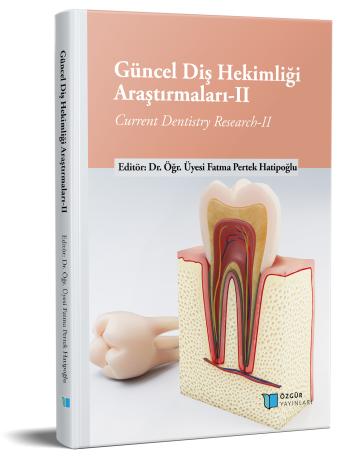
Çenelerin İlaca Bağlı Osteonekrozu (MRONJ)
Şu kitabın bölümü:
Pertek Hatipoğlu,
F.
(ed.)
2023.
Güncel Diş Hekimliği Araştırmaları- II.
Özet
İlaçla ilişkili çene osteonekrozu (MRONJ), bazı ilaçların nadir görülen fakat oldukça ciddi bir yan etkisidir. Bu ilaçlardan en yaygın bilineni bifosfonatlar olsa da biyolojik antirezorptifler, antianjiyojenikler ve immünmodülatörler de MRONJ etiyopatolojisinde yer tutmaktadır. Yakın zamanda, yeni ilaçlar da çene osteonekrozu (ONJ) ile ilişkilendirilmiştir. Önümüzdeki yıllarda, bu olumsuz etkiye sahip olduğu kabul edilen ilaçlara benzer etki mekanizmalarına sahip yeni ilaçlar pazarlanacaktır. Bundan dolayı ilaca bağımlı çene nekrozu ile daha sık karşılaşacağımız günlerin geleceğini öngörebiliriz. Bu durumda diş hekimlerinin MRONJ hakkındaki bilgilerinin güncel olması oldukça önem kazanmaktadır.
Çene osteonekrozunun dental prosedürlerle tetiklediği ve özellikle onkolojik hastalarda yönetilmesinin çok zor olduğu birçok çalışmada belirtilmiştir. Tedavisi için çeşitli görüşler olan bu patoloji özellikle protez ve cerrahi uzmanlarını zorlamaktadır. Kapsamlı cerrahi müdahale ve lazer cerrahisinin en yüksek iyileşme oranların sahip olduğunu gösteren mevcut kanıtlara rağmen, protez rekonstrüksiyonu gerektiren büyük çene defektleri için cerrahi rekonstrüksiyon her zaman mümkün değildir. Ayrıca hastanın diğer sistemik durumları sebebiyle cerrahi tedavi bir seçenek olmayabilir.
Günümüzde çene nekrozu için etkili ve kabul görmüş bir tedavi yoktur. Bu nedenle, yeni MRONJ vakalarını önlemek esastır.

